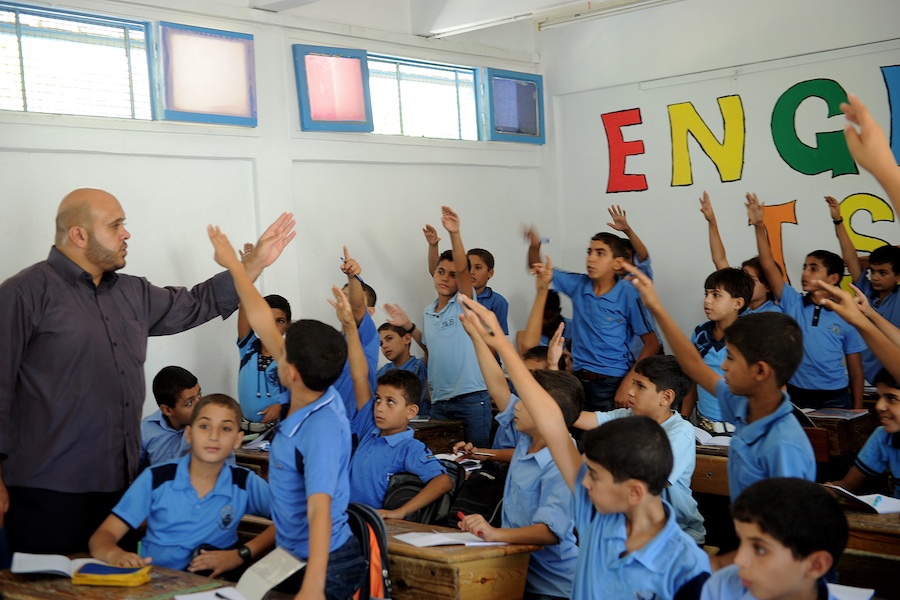Anti-Israel and anti-Jewish bias in textbooks used by Palestinian students in United Nations Relief and Works Agency-run schools in the West Bank and Gaza Strip has only increased in recent years, the author of a new study of the issue told The Algemeiner on Wednesday.
Dr. Aaron Groiss — whose 261-page report was published in cooperation with the Simon Wiesenthal Center, Center for Near East Policy Research and Middle East Forum — said he had reviewed 77 books issued by the Palestinian Authority in 2016 and 2017, and noted that “the attitude toward Israel and Jews has gotten worse.”
According to the study, three basic principles undergird the ideology toward Israel and Jews taught to Palestinian children – “delegitimization, demonization and indoctrination to violent struggle instead of peace.”
For example, the report found, “Jewish holy places, such as the Wailing [Western] Wall in Jerusalem, the Cave of the Patriarchs in Hebron and Rachel’s Tomb in Bethlehem, are not recognized as such. Rather, they are presented in the books as Muslim holy places usurped by the Jews.”
Also, Israel “is not recognized as a sovereign state and its name does not appear on maps, except for one case in which it is depicted as an occupying entity since 1948,” the report said. “Israel is sometimes replaced by Palestine as the sovereign state in the region both in text and on maps, and the latter is supposed to cover all of Israel’s territories after their liberation from occupation.”
Rabbi Abraham Cooper — the associate dean and director of global social action at the Simon Wiesenthal Center — told The Algemeiner, “It’s a war curriculum, not a peace curriculum.”
“Based on what is now being taught, for the next generation of Palestinian kids, there is no Israel, it doesn’t exist,” Cooper continued. “There’s absolutely nothing in these books that sets the stage for any breakthrough that would bring true peace between the two peoples.”
This week, Groiss and Cooper — joined by David Bedein, CEO of the Center for Near East Policy Research, and Jonathan Halevi, senior researcher on Middle East affairs and radical Islam at the Jerusalem Center for Public Affairs — held meetings on Capitol Hill in Washington, DC and at UN headquarters in New York City, where they presented the study.
“The UN, through UNRWA especially, is part of the problem, and it has the leverage, if it exercises it from the top, to send a signal to the Palestinians,” Cooper said.
“This is not a right or left issue,” he went on to say. “This is a study that everybody, across the full political and social spectrum, everywhere, needs to read.”









